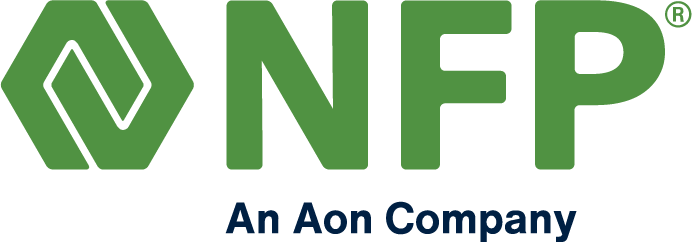The Future of the Compensation Committee. Is it secret? Is it safe?

It’s no secret that the role of the Compensation Committee has been evolving for some time now. It is safe, however, to say that sitting on a Compensation Committee (or board of directors for that matter) is not what it used to be. What was merely a fiduciary role to shareholders has now grown in equal parts of responsibility and complexity.
Over the last several years there has been an increase in the number of companies expanding Compensation Committee charters and even changing the name to pair (i.e., Human Capital Committee, Compensation and Human Resources Committee, etc.). Institutional investors, proxy advisory firms, and (more recently) internal pressures (i.e., employees) are among the loudest voices in the room that are driving some of the changes to company boards. In the case for Compensation Committees, these voices are continuing to advocate for increased disclosure around human capital metrics, and there is strong anticipation that the majority of Compensation Committees over the next few years will see added oversight in this arena, if not already.
In light of ongoing changes happening at the board level, we thought it would be helpful to share key insights on compensation committee-related topics going into 2023, ii) offer simple steps to remain vigilant and iii) encourage business leaders as they respond to change.
The Compensation Committee’s New Groove
While most Nominating and Governance Committees have taken Environmental, Social and Governance (ESG) topics under their wing, Compensation Committees have taken on subjects such as Human Capital Management (HCM), Internal Pay Equity and Diversity, Equity & Inclusion (DEI), to name a few.
Placing oversight responsibility at the board level in areas such as talent strategy, for example, requires that board members become intimately familiar with management’s process and procedures for identifying who, what and how much talent is needed and how to retain that talent for the long haul. Ultimately, the management, namely the Chief Human Resources Officer, is responsible for spearheading, implementing, and executing corporate HR initiatives and strategies; however, we will continue to see increased board involvement in these areas as time goes on, via managing, organizing, and holding their organizations accountable.
Below we have highlighted a several key topics many Compensation Committees are placing an emphasis on for 2023 and beyond:
- Human Capital Management (talent acquisition, talent management, talent optimization)
- Diversity, Equity & Inclusion
- Internal Pay Equity & Compression Issues
- Continuous Investor & Employee Feedback (qualitative data)
Staying Ahead in 2023 and Beyond
Pruning Committee Calendars. One simple approach that we have found most helpful to ensure all key items and emerging topics are covered efficiently is by keeping a detailed Compensation Committee calendar. A well-designed committee calendar outlining key agenda items can not only help a committee stay organized but ensure enough time is carved out to effectively cover each item thoroughly. Most committees may find that additional meetings (i.e., 5 meetings per year) or additional time per meeting (i.e., 90 minutes per meeting) are necessary in order to spend a sufficient amount of time on all matters.
Facilitating Communication and Interaction. Establishing relationships with key members of management is critical for clear and concise communication. In this specific case, having the Chief Human Resources Officer involved in Compensation Committee meetings is important to ensure the Committee is not only educated on emerging human capital-related topics, but also up to date on strategic initiatives taking place at their organization. Between board members, cross-committee interaction, or committee’s joining up to organize and coordinate their efforts, is another emerging practice that has not been as prevalent in the past. A prime example of this could involve committee chairs, the lead director or non-exec chair and CEO coming together to determine what topics should be discussed amongst individual committees and which should involve the entire board.
Disclosures, Disclosures, Disclosures. Companies have a great opportunity to communicate with shareholders and tell their story through disclosures, and over the last decade we have seen disclosures continue to grow in size as a result of external pressures pushing for additional transparency and mandates from the SEC. However, many companies continue to provide vague disclosure or even remain silent on “investor friendly” topics, which often leads some to draw up their own assumptions. Specifically, there are very few well-known companies that have issued “voluntary” and “robust” human capital disclosures, and far fewer companies are disclosing actual corporate metrics and objectives used to run the company. With the SEC’s adoption of Pay vs. Performance disclosure rules now in effect, it is becoming clear that many have opted to err on the side of what’s required rather than over-disclosing via additional narratives and graphics. As the old adage goes, sometimes more isn’t better, and it appears that for the moment investor clarity isn’t getting any clearer. With this in mind, it is important for companies to consider what is important to their shareholders while balancing what is legally required to be disclosed.
Leveraging Consulting Firms. As the scope of responsibilities for Compensation Committees continues to expand, so must the competencies and capabilities of their consultants. Therefore, having the right advisors at your side cannot be overstated. Consultants, for the most part, are business junkies and remain at the forefront of emerging trends. One of the great benefits of partnering up with a third-party advisor is that they can help sift through the mud by providing insights into what is pressing and needs attention and what does not. Consultants can serve as a supplement to already buttoned-up leadership or even serve as a change agent, guiding organizations through unfamiliar waters.
Words of Encouragement
As a strategic partner to our clients, part of our job, aside from providing data, education, and solution, is to walk alongside and support board members and management teams as they navigate change. Rapid change over a short timeframe can be burdensome and even breed confusion, discouragement, and disconnection. At NFPCC, we believe that leading by example and navigating difficulty well is something to be admired. Most people are drawn to strong leadership and are motivated by others rising to the occasion to confront new issues head on. We want to applaud all who have put on their chaps and spurred themselves and others to take on new challenges and difficulties without despair. Rest assured; more changes are coming.







